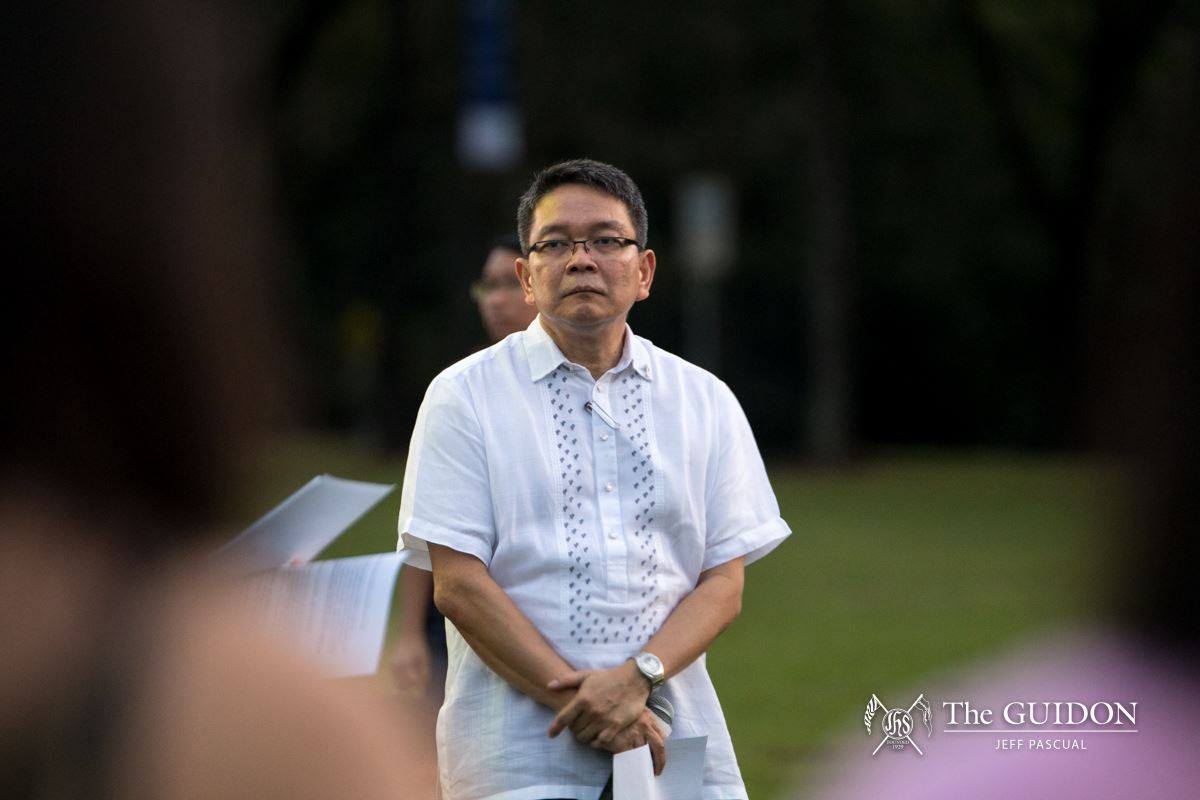UNIVERSITY PRESIDENT Jose Ramon Villarin, SJ urged the preservation of democratic values and institutions amid proposals for the establishment of a revolutionary government (RevGov) in the Philippines.
In a memo to the Ateneo community yesterday, November 29, Villarin said that the revolutionary government proposed by some of President Rodrigo Duterte’s supporters is “dangerous” and risks “undermining democratic institutions and the economy” as power would be concentrated in the hands of the few.
A revolutionary government, which has no basis in any legal document, is a government wherein existing institutions, such as the Constitution and separation of powers in the government, would be disregarded. Power will also be concentrated in one person or the hands of the few who would comprise it.
On October 13, Duterte threatened to declare a revolutionary government if there are movements to destabilize his administration, but retracted this threat one month later, saying that he would arrest destabilizers instead.
Protests for and against RevGov are expected around the country today, November 30.
Hastening reforms and development
According to Villarin, RevGov advocates “are essentially tapping on growing discontent with the slow pace of much needed reforms in both our political and economic spheres.”
Some Duterte supporters have formed groups such as the Hukbong Federal ng Pilipinas in an effort to compel the president to declare a revolutionary government and expedite the establishment of a federal system and other reforms.
Villarin stated that “[the RevGov proposition] has a very simplistic theory of change [and] contends that concentrating power in the hands of a few would give them the means to execute the key reforms necessary to move the country forward.”
“Perhaps unwittingly, [RevGov proponents] are in turn fueling an under-appreciation of reform gains and an over-emphasis on reform barriers,” he said.
On democracy and authoritarianism
The University President argued that setting up a revolutionary government is not the solution to the slow pace of reform in the country and may “[reinforce] what ails our politics and economics.”
Villarin also said that RevGov “offers an old narrative that our people have endured before,” citing the two decades of authoritarian rule under Ferdinand Marcos. He noted how it “took long to repair and rebuild our institutions since the dictatorship was toppled.”
“Indeed our very own experience of years of authoritarian rule during martial law compels us to reject any moves to establish a RevGov,” he said.
Villarin also exalted the value of strengthening institutions over the temptation of authoritarianism.
“The question Filipinos are facing now is whether authoritarian rule trumps incremental democratic institutions reforms. Our answer to this is a resounding ‘no’,” he said.
Moreover, Villarin warned of the “uncertainty and unpredictability” of revolutionary governments based on international experience which may initially provide good effects on the economy, but would eventually compromise social values in the long run.
“More critically, studies also show that revolutionary leaders are much more likely to engage in violence, in mass killings, compared to non-revolutionary leaders. Many revolutionary governments do not transition to democratic institutions. Instead, they remain stuck in authoritarian rule much to the detriment of the general population and their aspirations for true change and inclusive development,” he said.
Given this, he acknowledged Executive Order No. 5 or the “Ambisyon Natin 2040” plan enacted by President Duterte which envisions change and progress, while keeping democracy and participatory institutional reforms at its core.







